An Assistant Chief from Ugenya, Siaya County, cracked up top officials from the Ministry of Interior, led by Cabinet Secretary Kipchumba Murkomen, with his pro-chang’aa proposal. Nicholas Mudaho from Yala Sub-County urged the national government to legalize and regulate chang’aa, arguing that prohibition has failed to curb the widespread consumption of illicit alcohol.
Mudaho made the appeal during a high-level security and development meeting chaired by Cabinet Secretary Kipchumba Murkomen in Siaya under the Jukwaa la Usalama Initiative.
The meeting focused on government efforts to combat illegal alcohol, smuggling, and unregulated mining in the region.
Mudaho’s Chang’aa plea
Speaking as both a local administrator and a Policy and Development Studies student at Jaramogi Oginga Odinga University, Mudaho called for a shift away from punitive enforcement toward regulation and harm reduction.
“Despite countless raids, arrests, and court cases, NACADA data shows that 60 percent of alcohol consumed in Kenya is illicit. In Nyanza, it is even higher at 69 percent. That proves our current approach is failing.”
Mudaho argued that chang’aa is banned due to historical classification, while other traditional drinks like busaa are now regulated and sold legally under county government licenses.
He added that locally brewed chang’aa is often safer than second-generation spirits smuggled across the border from Uganda, which have been linked to deadly methanol poisoning outbreaks.
Mudaho proposed a policy to formalize chang’aa production by providing safe distillation equipment, standard packaging, and strict quality checks.
This, he said, would make the product safer, generate tax revenue, and create jobs, similar to the growth of legal distillers like Keroche Breweries.
Mudaho’s grandfather served as an assistant chief in 1968, and decades later, Mudaho finds himself arresting the same families.
“This shows how deeply rooted the problem is. Sometimes during raids, you see extreme poverty. Instead of arresting, you have to weigh the law against people’s survival.”
Mudaho’s Defence
In making his case for regulation, Mudaho explained the basic ingredients and process used to make traditional chang’aa, insisting that the drink itself is not inherently toxic when prepared correctly.
“Chang’aa is made from natural, locally available products; flour, sorghum, sugar, and pure distillation,” he said.
He contrasted this with the unregulated second-generation spirits smuggled into Kenya from neighboring countries, particularly Uganda, which have been linked to fatal methanol poisoning incidents.
Kenya’s Alcoholic Drinks Control Act of 2010 repealed the outright ban on chang’aa and set rules for licensing and regulation, but enforcement has been inconsistent.
Most chang’aa production remains underground, leaving consumers vulnerable to dangerous contamination and leaving brewers in constant conflict with the law.
Also Read: Govt to Crackdown on Illicit Alcohol and Mining in Western Kenya
Public health experts have long warned that illicit, methanol-laced brews are responsible for cases of blindness and death in parts of the country.
Mudaho argued that these tragedies could be prevented through regulation rather than continued crackdowns.
Mudaho and seven fellow students are finalizing a policy paper on chang’aa regulation, which they plan to present to senior government officials. He appealed to CS Murkomen and other national leaders to support their proposal.
“We have been fighting chang’aa for generations, yet the problem persists. It is time to think differently to make chang’aa safe, legal, and beneficial to our communities.”
CS Murkomen on Illicit Alcohol
Nicholas Mudaho’s efforts might, however, be in vain.
Murkomen has ordered a crackdown on businesses in Kiambu and Nairobi counties that are licensed to produce or sell alcohol but have shifted into the illicit alcohol trade, warning that their licences will be revoked.
Also Read: Waititu in Trouble as Court Delivers Verdict on Prison Sentence
He has threatened dismissal for chiefs and assistant chiefs whose villages or sub-locations are known for illicit brew trade and who fail to report or act upon information.
Murkomen has also launched the National Policy on the Prevention, Management, and Control of Alcohol, Drugs, and Substance Abuse.
Follow our WhatsApp Channel and X Account for real-time news updates.
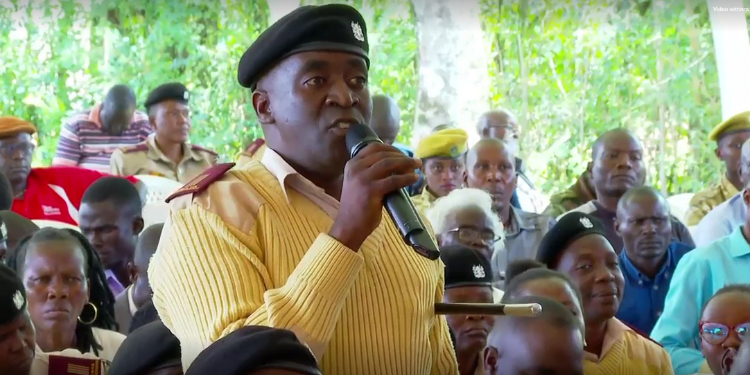


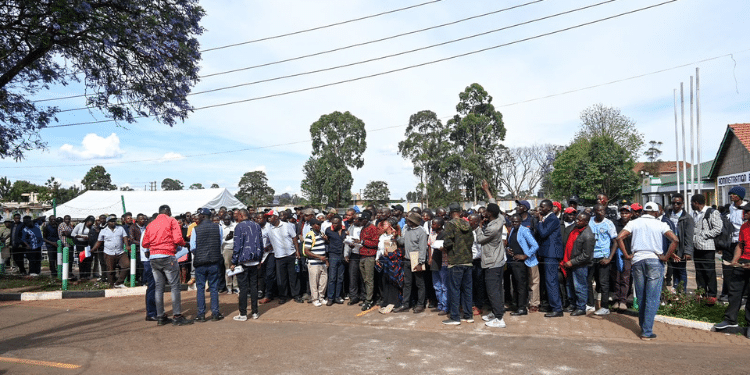

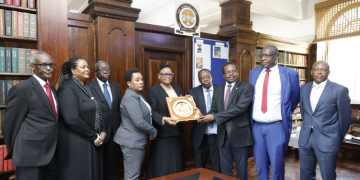

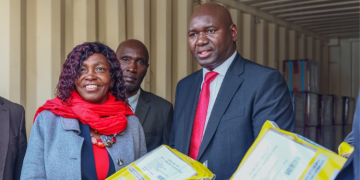










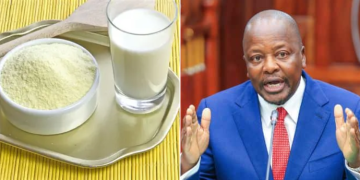

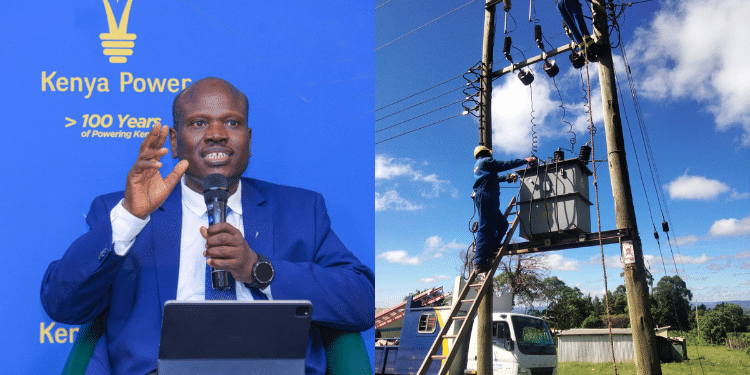
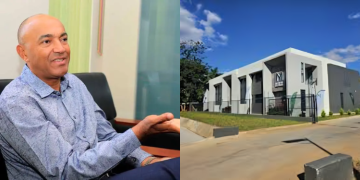




























![Senator Allan Chesang And Chanelle Kittony Wed In A Colourful Ceremony [Photos] Trans Nzoia Senator Allan Chesang With Channelle Kittony/Oscar Sudi]( https://thekenyatimescdn-ese7d3e7ghdnbfa9.z01.azurefd.net/prodimages/uploads/2025/11/Trans-Nzoia-Senator-Allan-Chesang-with-Channelle-KittonyOscar-Sudi-360x180.png)























